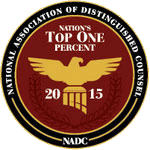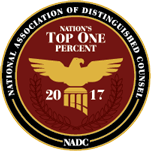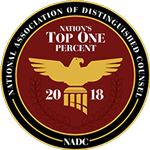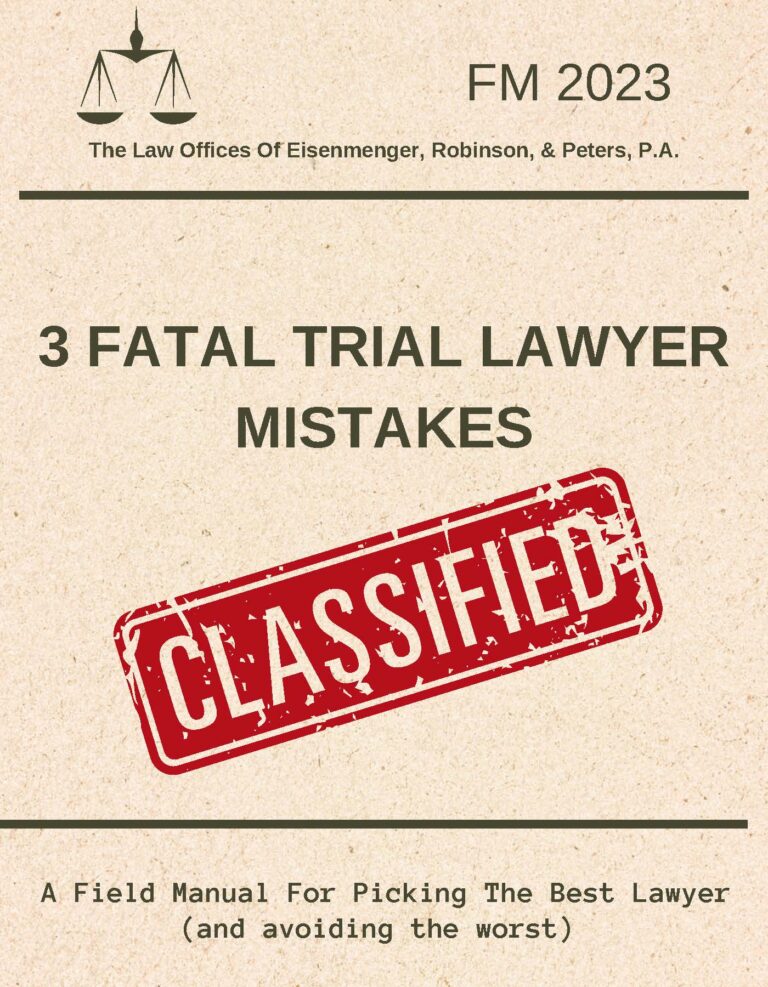Don’t Cross the Line!
On behalf of Eisenmenger, Robinson & Peters, P.A. posted in Criminal Law on Tuesday, August 26, 2014.
Welcome to my criminal law blog. I hope to use this space to talk about legal issues in the area of criminal law in a way that makes the law more understandable to regular folks. I hope to cover everything from the basic traffic stops to weighty constitutional issues.
With that in mind, let’s look at a recent case from the Florida Fifth District Court of Appeals, State v. Daniels, 39 Fla. L. Weekly D1014 (Fla. 5th DCA 2014). Daniels deals with a basic traffic law issue and a weighty constitutional law issue. In this case, one of our local judges granted a motion to suppress evidence based on an illegal traffic stop. The driver had stopped his vehicle with most of his front tire and the whole hood over the “stop bar.” The stop bar is the white line on the road beside or near a stop sign or stoplight. Florida Statute section 316.123(2)(a) says it is a non-criminal traffic infraction to fail to “stop at a clearly marked stop line.” After the driver stopped on the line, as opposed to behind it, a police officer pulled over the vehicle. When the officer approached the vehicle, he smelled marijuana. He ended up searching the passengers, and one of them had cocaine in his possession. That person was arrested for possession of cocaine. Mr. Daniels’ lawyer argued the stop of the vehicle was illegal because no traffic rule was violated. The trial court agreed and said the initial stop of the vehicle was illegal because the court did not think the word “at” in 316.123(2)(a) meant the vehicle had to be entirely behind the stop bar.
The Fifth District Court disagreed. They decided “at” the stop bar meant “entirely behind” the stop bar. The order suppressing the cocaine was reversed. The Fifth District rejected the Mirriam-Webster’s Dictionary definition of “at” as “presence or occurrence in, on or near.” The Court’s ruling means we cannot rely on dictionaries to define words when we are reading the law, even when the law itself does not give you an alternative definition for the word.
So this decision is important for a couple of reasons. First, it lets us know that we all run the risk of being pulled over by the police if we don’t stop completely behind a stop bar. This may result in having to stop twice at every intersection, because sometimes the stop bars are so far back we cannot see whether traffic is approaching.
The second reason the decision is important is that it illustrates an important point about the law. Your constitutional rights sometimes depend on where you stop your vehicle, or when you cross a line on the road, or what the word “at” means to judges in an appeals court. I wonder if these judges stop behind every stop bar?








